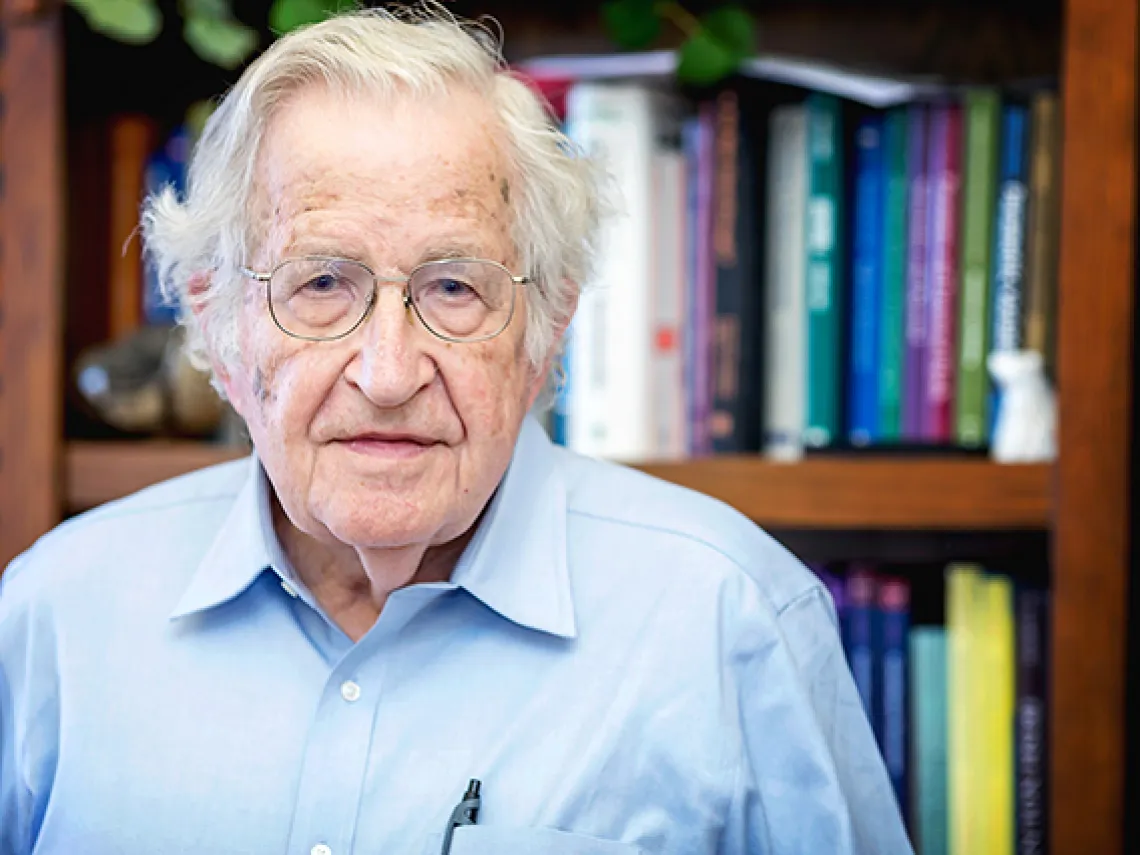UA Linguist Noam Chomsky Wins Frontiers of Knowledge Award
UA linguist and Haury Chair Noam Chomsky has received the BBVA Foundation’s Frontiers of Knowledge Award in the Humanities and Social Sciences category "for his unparalleled contributions to the study of human language.”

Noam Chomsky wins Frontier of Knowledge Award.
Photo by John de Dios
The BBVA Foundation Frontiers of Knowledge Award in the Humanities and Social Sciences has gone to UA Professor Noam Chomsky 'for his unparalleled contributions to the study of human language,' in the words of the award committee.
“It was in the late 1950s that Chomsky proposed that the human brain possesses an innate, pre-programmed knowledge enabling it to learn and develop language; a groundbreaking and now commonly accepted theory whose implications have set the agenda for new research efforts in diverse fields of science and the humanities,” the BBVA Foundation press release said.
The BBVA Foundation Frontiers of Knowledge Awards, established in 2008, “recognize and reward contributions of singular impact in science, art and the humanities, privileging achievements that significantly expand the frontiers of the known world, open up new fields, or emerge from the interaction of various disciplinary areas.” Seven awardees have subsequently gone on to win the Nobel Prize. This year, the Frontiers of Knowledge Awards added the category of Humanities and Social Sciences.
The award, which comes with a cash prize of 400,000 euros, will be presented at a formal ceremony in Bilbao, Spain, on June 18, 2019.
Chomsky is a laureate professor in the Department of Linguistics and the Agnese Nelms Haury Chair at the University of Arizona. Chomsky co-teaches linguistics and politics courses to UA students, including undergraduates, and community members.
Considered the founder of modern linguistics, Chomsky is one of the most cited scholars in modern history and has written more than 100 books, including the groundbreaking "Syntactic Structures," "Language and Mind," "Aspects of the Theory of Syntax" and "The Minimalist Program," each of which has made distinct contributions to the development of the field. Chomsky's work also has influenced the fields of cognitive science, philosophy, psychology, computer science, mathematics, childhood education and anthropology.
"Numerous studies on the acquisition of first and second languages would never have been possible without Chomsky's ideas as their starting point," said Ignacio Bosque, a professor of Spanish at the Universidad Complutense de Madrid and member of the Real Academia Española who nominated Chomsky for the Frontiers of Knowledge Award. "And many of the questions they pose could never have been formulated. We could go as far as to say that the very idea of creativity has had to be radically revised in the light of Chomsky's work."

